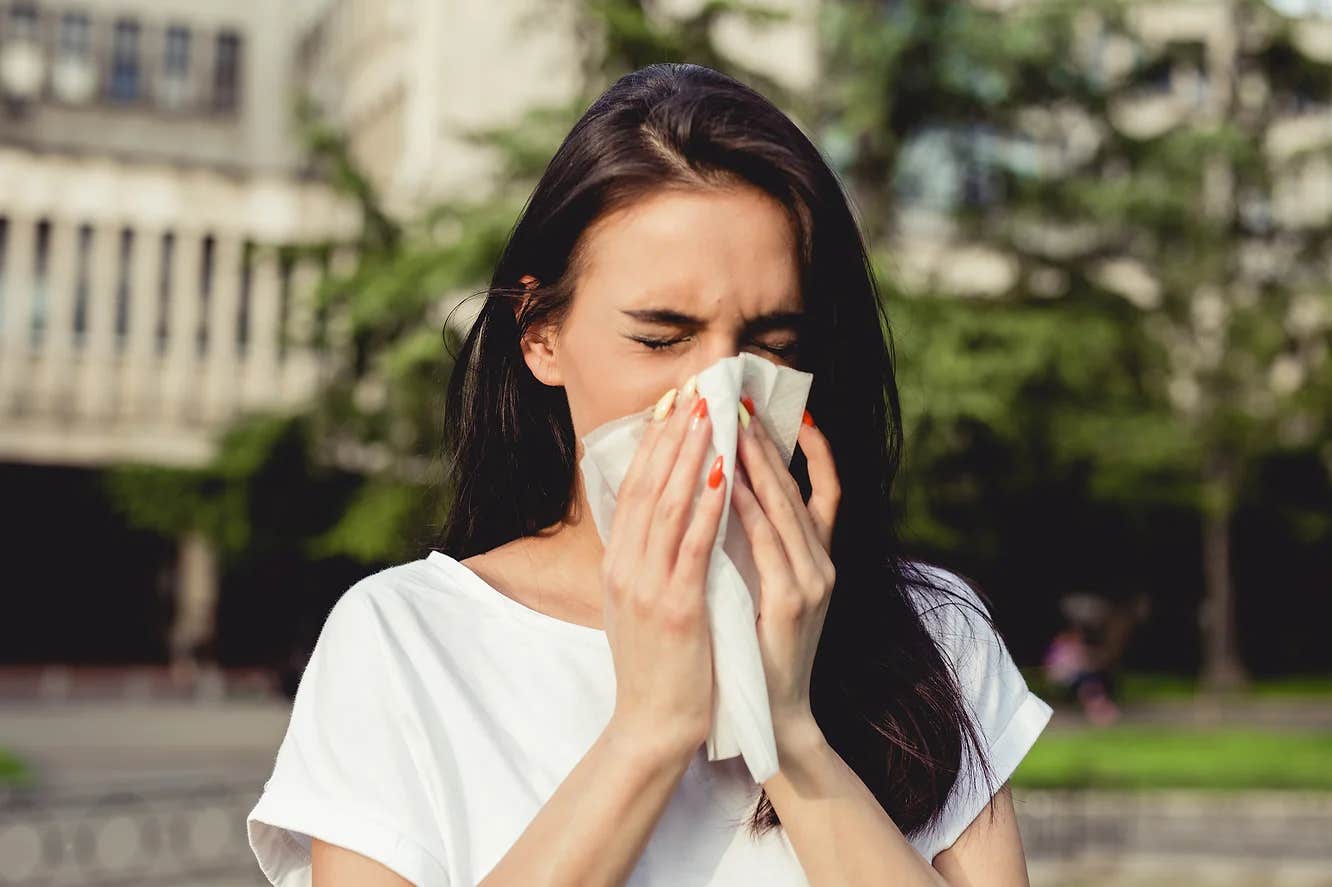Common dietary supplement found to significantly reduce cold symptoms and illness time
Beyond vaccines for the flu and COVID-19, most guidance sticks to basics: wash your hands, avoid unnecessary antibiotics, and use over-the-counter remedies.

Zinc has long been touted as a possible remedy for the common cold—but does the science really back that up? (CREDIT: CC BY-SA 4.0)
In the world of viruses and colds, there's one mineral that keeps popping up: zinc. Whether it's the sniffles from a cold or more serious illnesses like the flu or pneumonia, respiratory infections are a constant part of life. These viral infections can hit anyone, anywhere, and at any time of year. While most cases aren’t severe, they still add up to big problems—missed work, skipped school, and soaring health care costs.
What’s surprising is that your options for preventing or treating these viral infections are very limited. Beyond vaccines for the flu and COVID-19, most guidance sticks to basics: wash your hands, avoid unnecessary antibiotics, and use over-the-counter remedies to relieve symptoms. Some clinical guidelines suggest zinc might help, but there's been little clear evidence—until now.
Zinc’s Forgotten Past
Zinc isn't new. In fact, it’s been around in medicine for over two centuries. The story dates back to 1771, when German physician Hieronymus David Gaubius introduced it to European medicine as a drug full of promise. But back then, no one fully understood what it was. Gaubius discovered the mysterious powder sold by alchemists was just zinc oxide.
By the 19th century, it was being tested as a treatment for epilepsy, and in the 20th century, its medical use faded—until a comeback in the 1960s. That’s when it became a recognized therapy for zinc deficiency and Wilson’s disease, a rare disorder that causes dangerous copper build-up in organs. Since then, zinc has mostly stayed in the background, quietly treating certain conditions but rarely in the spotlight.
Until now.
A Closer Look at the Evidence
A team led by integrative medicine expert Jennifer Hunter from Western Sydney University in Australia wanted to change that. They carried out a rapid systematic review to examine whether zinc might actually help prevent or shorten the length of viral respiratory infections. Their work updated earlier reviews and focused on randomized controlled trials (RCTs) involving adult participants.
Related Stories
The researchers analyzed data from 28 clinical trials that looked at various forms of zinc—nasal sprays, lozenges, and pills. They reviewed studies from around the world, including large trials in China and smaller ones in the United States, where participants were not zinc deficient. This was important because it challenged the common belief that zinc supplements are only useful if someone is already lacking the mineral.
Their findings suggest zinc might be more helpful than many people thought. When taken as a preventative, zinc reduced the risk of getting symptoms by 28%. Even better, it cut the chance of getting moderate to severe symptoms by a whopping 87%. And for those who were already sick, zinc slightly reduced the length of symptoms. On average, it helped people recover from their worst symptoms about two days faster than those not taking zinc.
The Catch: What We Still Don’t Know
Of course, this doesn’t mean zinc is a miracle cure. While it seemed to shorten sickness, the severity of symptoms didn’t change much. And in studies where people were deliberately infected with cold viruses, zinc didn’t prevent infection. So it won’t necessarily stop a virus from entering your body, but it might help you feel better sooner.
Also, not all the studies in the review were large or consistent. Some used very different doses and forms of zinc, which makes comparing results tricky. That’s one of the biggest problems with this kind of analysis—if the original studies aren’t strong, the overall results might not be reliable.
Another issue is the lack of research on how zinc works to fight viral infections. Scientists believe zinc might help by supporting immune function and reducing inflammation. It also appears to have antiviral effects in lab settings, particularly against viruses like the coronavirus. Still, these theories haven’t been fully confirmed in human trials.
Even with these unknowns, many people started taking zinc during the COVID-19 pandemic. Some doctors and hospitals even recommended it as part of their treatment approach. The reasoning was simple: the risks are low, and it might help. In both wealthy and low-income countries, sales of zinc supplements jumped sharply.
Hunter, however, cautions against jumping to conclusions. “Clinicians and consumers need to be aware that considerable uncertainty remains regarding the clinical efficacy of different zinc formulations, doses and administration routes,” she says.
The review found most trials used zinc gluconate or zinc acetate, but that doesn't prove these are the best. We still don’t know whether a spray, lozenge, or pill works better—or how much to take and for how long. Side effects can also be a concern. High doses may cause nausea or, in the case of nasal sprays, a loss of smell. Serious complications are rare but can occur if zinc enters the brain, especially in people with certain disorders.
A Push for More Research
The researchers chose not to include COVID-19 in the final title of their study. They were careful not to exaggerate the results, especially given the early stage of most SARS-CoV-2 trials at the time. Still, the review supports the idea that zinc deserves a closer look, especially for preventing common colds and flu-like illnesses.
This growing interest aligns with larger calls for more studies into “immuno-nutrition”—how nutrients like zinc affect the body’s defenses. This is especially important for people at higher risk for infections, like the elderly or those with chronic conditions.
Jennifer Hunter and her team followed Cochrane and PRISMA guidelines to ensure the research was well-organized and transparent. They even adjusted their protocol based on feedback from health professionals and patient advocates before starting data extraction. They wanted to be sure the study was useful, realistic, and scientifically responsible.
For now, zinc is still best used with care. It might help you stay healthier during cold season, or recover just a little faster. But it’s no substitute for vaccines, proper hygiene, or staying home when you’re sick.
If anything, this research highlights how something as simple as a mineral supplement can still hold secrets worth uncovering. As Hunter puts it, “At the moment there just isn't enough research to say whether a zinc nasal spray, versus a nasal gel, versus a lozenge, versus oral zinc is any better or worse than the others.”
Still, the evidence points in a promising direction. Zinc may not be the miracle cure Gaubius once hoped for—but it’s far from useless. With better studies and more data, it could yet play a key role in how we deal with viral infections.
The study appears in BMJ Open.
Note: The article above provided above by The Brighter Side of News.
Like these kind of feel good stories? Get The Brighter Side of News' newsletter.



